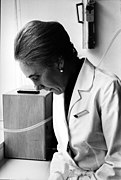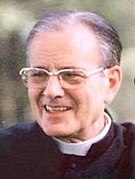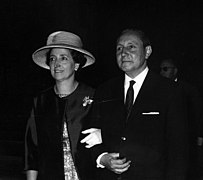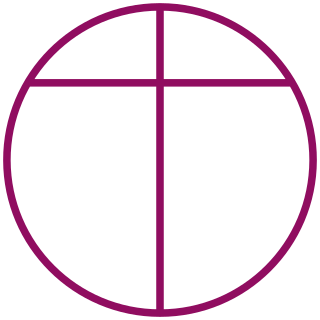
Opus Dei was founded in Spain in 1928 by Catholic priest Josemaría Escrivá. Its stated mission is to help its lay and clerical members to seek Christian perfection in their everyday occupations and within their societies. Opus Dei has long attracted significant controversy regarding its political activities and its alleged cult-like practices.
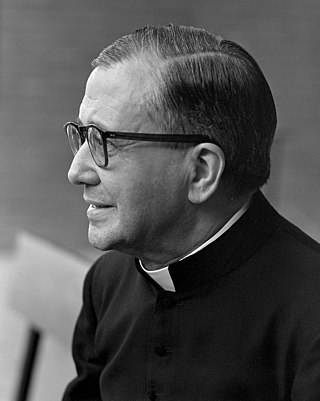
Saint Josemaría Escrivá de Balaguer y Albás was a Spanish Roman Catholic priest. He founded Opus Dei, an organization of laypeople and priests dedicated to the teaching that everyone is called to holiness by God and to discover sanctity in their ordinary lives. He was canonized in 2002 by Pope John Paul II, who declared Josemaría should be "counted among the great witnesses of Christianity."

Álvaro del Portillo y Diez de Sollano was a Spanish engineer and Roman Catholic bishop. He served as the prelate of Opus Dei between 1982 and 1994 as the successor to Josemaría Escrivá.

The University of Navarra is a private research university located on the southeast border of Pamplona, Spain. It was founded in 1952 by Josemaría Escrivá de Balaguer, the founder of Opus Dei, as a corporate work of the apostolate of Opus Dei. The University of Navarra is among the best private universities in Spain. The University of Navarra is third in the "European Teaching Rankings of 2019" by Times Higher Education's International Rankings.
Opus Dei and politics is a discussion on Opus Dei's view on politics, its role in politics and its members involvement in politics.
Opus Dei: A Historical Timeline shows the historical development of Opus Dei.
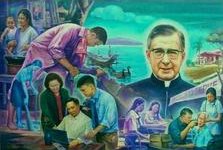
Teachings of Opus Dei are the teachings of the founder of Opus Dei, St. Josemaría Escrivá de Balaguer.

The Priestly Society of the Holy Cross is an association of Catholic diocesan priests which is integrally united to the Prelature of Opus Dei.
Opus Dei is a personal prelature within the Roman Church that has been the subject of numerous controversies. Throughout its history, Opus Dei has been criticized by many, including by numerary members who knew the founder and had roles in Opus Dei's internal government. The reports by former members in the US, England, Spain, Latin America, France, Germany, and other countries are published. Journalists have described it as "the most controversial force in the Catholic Church" and its founder Josemaría Escrivá as a "polarizing" figure.
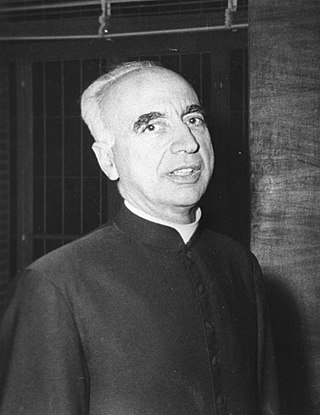
José María Albareda Herrera was a Spanish soil scientist and science administrator. From its 1939 creation by Francoist Spain to his 1966 death, he was the secretary general and head of the Higher Council of Scientific Research (CSIC), the main Spanish scientific institution.
Canonization of Josemaría Escrivá de Balaguer discusses John Paul II's decision to canonize Josemaría Escrivá, founder of the Prelature of the Holy Cross and Opus Dei, more commonly known as Opus Dei.

Pedro Rodriguez is a theologian who specializes on church studies or ecclesiology. He has written dozens of books and articles on theology. He is priest of the prelature of Opus Dei. He teaches at the University of Navarra in Pamplona, Spain and was its dean of theology for many years.
Women form 57% of the membership of the Opus Dei prelature. The role of women in Opus Dei has sometimes been a source of criticism for the organization.

Dora del Hoyo Alonso, was one of the first women members of Opus Dei. A domestic worker by profession, del Hoyo was the first to join the Prelature of Opus Dei as an assistant numerary meaning that she dedicated herself professionally to caring for people and looking after the material needs of Opus Dei centers. From 1946 until her death, she lived in Rome, Italy where she collaborated first with Josemaría Escrivá de Balaguer, Opus Dei's founder, and later on with his successors Álvaro del Portillo and Bishop Javier Echevarría, in the domestic management of the first Opus Dei center there, later the movement's headquarters. Her process of canonization was opened in Rome on June 18, 2012 by Echevarría, at the request of many who knew and worked with her. Her mortal remains lie close to the tomb of Escriva, in the crypt of Our Lady of Peace Church in Rome.
Andres Vazquez de Prada y Vallejo was a Spanish historian, lawyer, professor, diplomat and writer.

Guadalupe Ortiz de Landázuri Fernández de Heredia was a Spanish Roman Catholic professor and a member of the Opus Dei personal prelature. She was one of the first women to join Opus Dei, after meeting the founder Josemaría Escrivá in 1944. She helped start Opus Dei in Mexico and also collaborated directly with Escrivá in Rome. A serious heart condition eventually claimed her life in 1975.

Miguel Fisac (1913–2006) was a Spanish architect, urban planner, and painter. He was a member of Opus Dei.

Onésimo Díaz Hernández is a Spanish historian known for his publications regarding the history of Spain in the twentieth century.
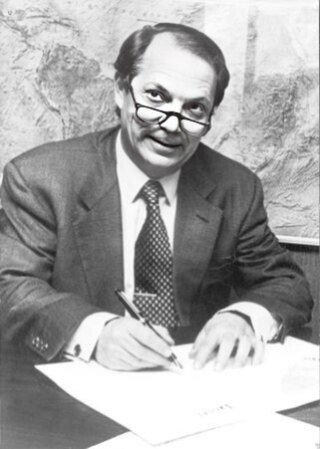
José Serret Borda, known as Pepe Serret Borda, was a Spanish economist and entrepreneur. He served as the director of various companies in the food sector, was involved in the promotion of Opus Dei's schools, and managed some agricultural schools (EFA).



